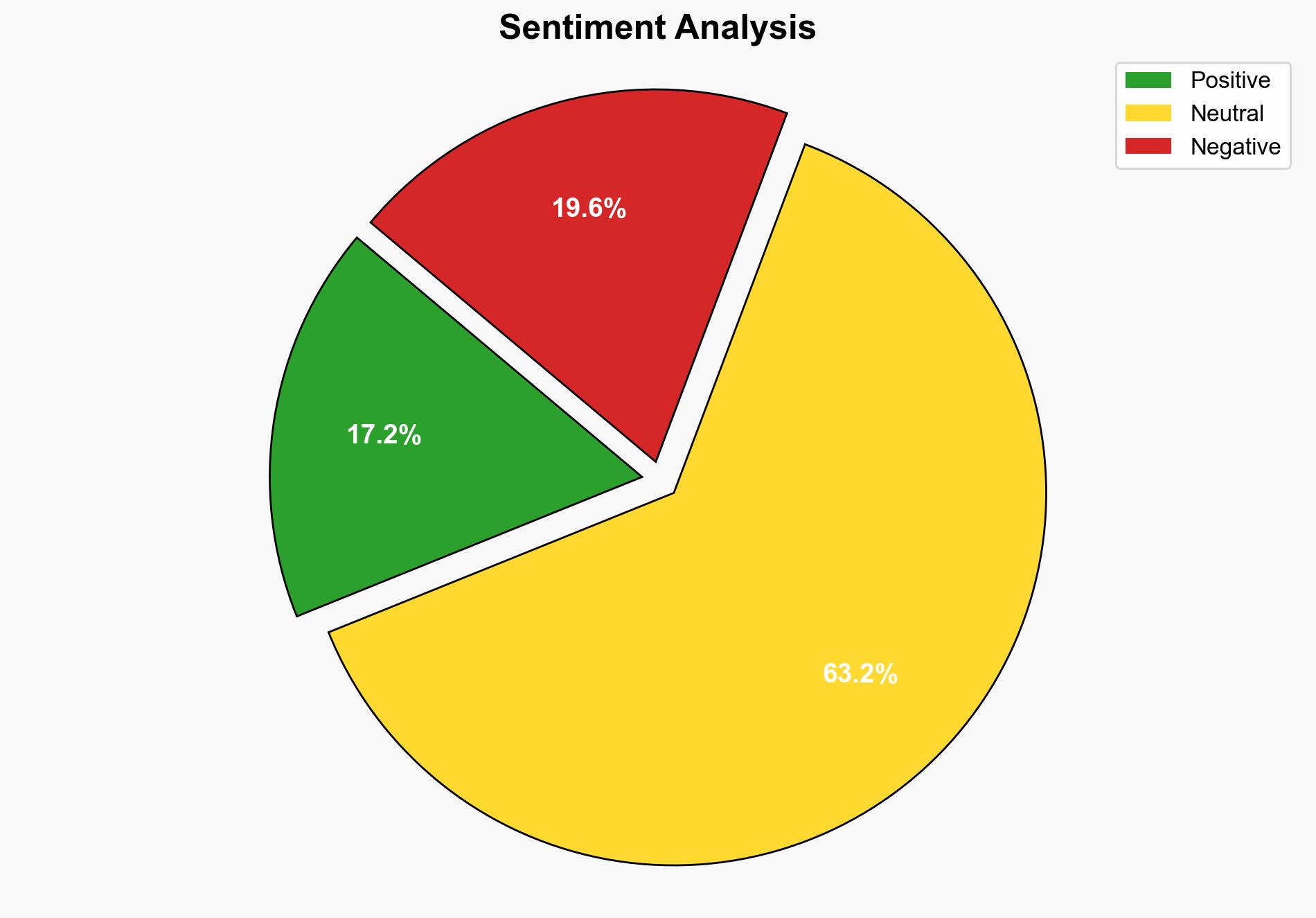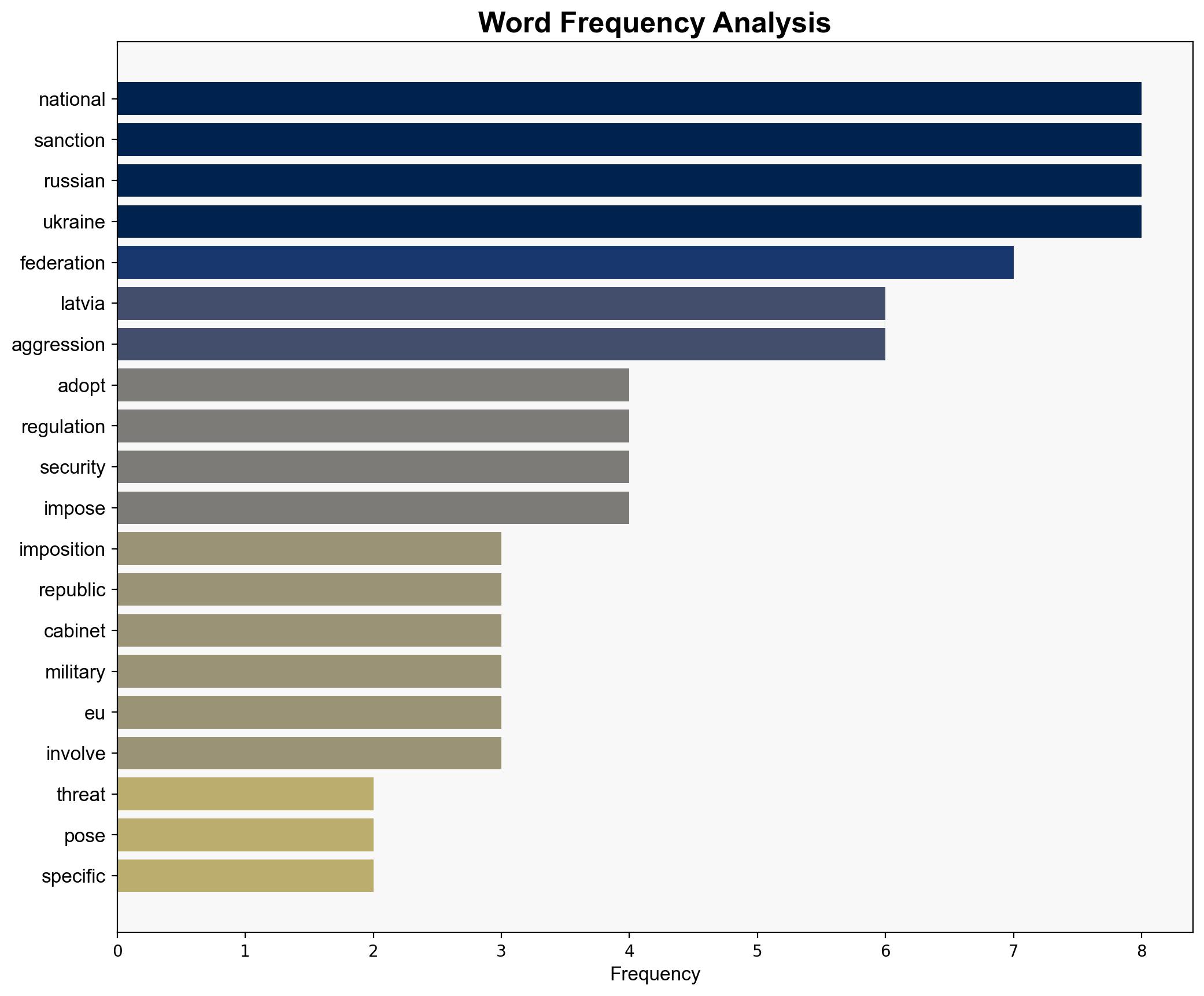The Government adopts regulations on the imposition of Latvia’s national sanctions – Globalsecurity.org
Published on: 2025-09-13
Intelligence Report: The Government adopts regulations on the imposition of Latvia’s national sanctions – Globalsecurity.org
1. BLUF (Bottom Line Up Front)
The Latvian government’s adoption of new regulations for imposing national sanctions is a strategic move to enhance its security posture against Russian aggression. The most supported hypothesis is that these sanctions aim to deter entities supporting Russian military actions in Ukraine. Confidence in this hypothesis is high due to the alignment with EU sanctions and Latvia’s national security interests. Recommended action includes close monitoring of sanction impacts and readiness to adjust measures in response to Russian counteractions.
2. Competing Hypotheses
Hypothesis 1: Latvia’s new sanctions are primarily a symbolic alignment with EU measures to demonstrate solidarity and political unity against Russian aggression.
Hypothesis 2: The sanctions are a targeted effort to disrupt specific economic activities and individuals that directly threaten Latvia’s national security and support Russian military operations.
Using ACH 2.0, Hypothesis 2 is better supported. The detailed criteria for imposing sanctions on individuals and entities, coupled with the focus on national security threats, suggest a targeted approach rather than merely symbolic action.
3. Key Assumptions and Red Flags
Assumptions: Latvia’s national security assessments accurately identify threats. The sanctions will effectively disrupt targeted entities’ operations.
Red Flags: Potential underestimation of Russia’s capacity to circumvent sanctions. Lack of clarity on enforcement mechanisms and potential economic repercussions for Latvia.
4. Implications and Strategic Risks
The sanctions could escalate tensions with Russia, leading to retaliatory measures affecting Latvia’s economy or cyber infrastructure. The effectiveness of sanctions depends on international coordination and enforcement. There is a risk of economic fallout if targeted individuals have significant business ties within Latvia.
5. Recommendations and Outlook
- Enhance intelligence-sharing with EU partners to monitor sanction impacts and adjust strategies accordingly.
- Prepare contingency plans for potential Russian retaliation, including cyber defense measures.
- Best Case: Sanctions effectively weaken Russian support structures, reducing aggression.
- Worst Case: Economic backlash and increased cyber threats from Russia.
- Most Likely: Moderate disruption to Russian operations with some economic impact on Latvia.
6. Key Individuals and Entities
No specific individuals are mentioned in the source text. Focus remains on entities supporting Russian military actions.
7. Thematic Tags
national security threats, cybersecurity, counter-terrorism, regional focus




